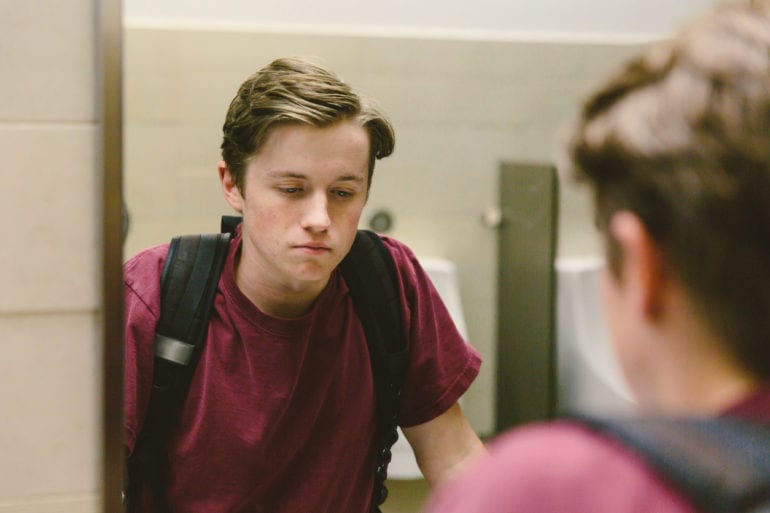#AskAlyson: Bathroom Accidents
Tags: bathroom, embarrassment, health
Dear Alyson,
My 9 year old is still pooping in his pants. Well, not really pooping, but there are skid marks (sorry to be so graphic). We had difficulties with this when he was potty training in his kinder years, and had to get medical attention for his constipation. He finally was diagnosed with encopresis and we currently have him on Restoralax and have him on a poop schedule where by he has to sit on the toilet in the morning and after supper. Still I find he has released some in his underwear. I am at a loss. He is also very upset with himself about this, saying he is a bad boy and crying. I am at a loss.
Anonymous.
Dear Anonymous,
You are not alone. This is more common than you think but parents keep it hush hush since its embarrassing and a bit of a taboo subject.
It’s also a bit of a complicated topic because it has biological, social and psychological components. While I don’t have all the details, I can make a few guesses that might be helpful.
Sometimes when we potty train, we are a bit more controlling than is needed and we can invite resistance from our toddlers. This is especially true for tots who have a high need for control themselves. Defying orders by holding can create constipation.
Then – psychologically, there can be an association between the pain of moving dry compacted stools and toileting that makes kids fear or hold even more. It’s a vicious cycle. Biologically, we can throw the system off by not responding to natural signals of the body or dampening the signals of distention or enlarging the bowel. The doctor is helping you with that by the Restoralax and the regular opportunities to move the bowels on a schedule rather than relying on the body to detect the need to go.
Socially, though – kids can also learn that this medical situation requires parental supervision and worry. Talking about it, concern for it, discussions about or scolding for – whatever it might look like; means this is no longer just about him and his body, but also about him, his body and you.
I simply want to eliminate the social aspect by withdrawing you as much as possible from the equation. Left to his own body and it’s accidents, over time he will come to see the benefits of paying closer attention to his signals and responding. Or perhaps he will tire of the hassle of dealing with the after mess clean up.
SO – to that end, find as many ways to help him be self-sufficient. Can you teach him to set his own timer for when he has his scheduled poops? Can you show him how to clean up after an accident in his pants so you are not left dealing with yucky undies in the moment? This is not meant to be punitive, but rather a life skill of taking care of one’s self, much like teaching a diabetic how to watch their insulin and give their own injections. Maybe you have to assist a bit, but again, just as little as possible and in a simple matter of fact way. No fretting, no complaining, no moralizing judgements.
Can you find other areas of his life where he might feel more control? What other things could he be doing more autonomously? Increasing agency in other areas can help him lessen the grip hold on controlling his bowels.
Don’t protect him from the consequences of being smelly. If you notice he is smelly, simply state you are unwilling to be near the odor. If he wants to be with people, he’ll be interested in changing his undies. If his peers say something at school, he will feel embarrassed and this will create more intrinsic motivation to pay attention and move quicker to get to a toilet.
Be compassionate, have faith in him to learn about and how to run his body. Empower him to take the lead in this process. Offer minimal support and only encouragement that you believe he will master this over time, no matter how long that takes.
Hope that helps!
Alyson



Leave a Reply